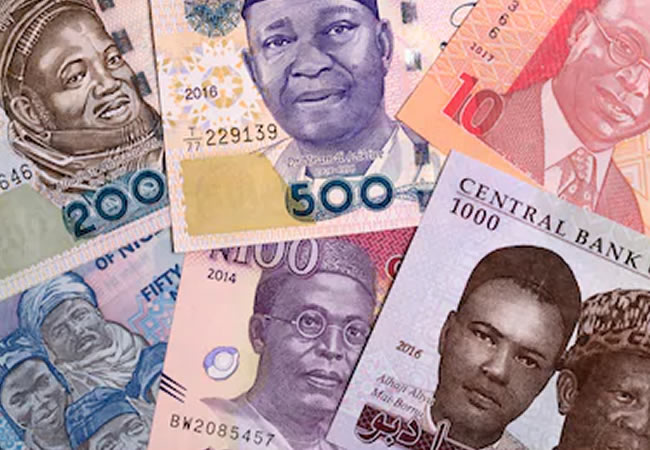On Friday, the official market for the Nigerian Naira saw a significant increase, with the currency trading at N1,142.38 per dollar. The Naira rose by N88.23, according to data from the FMDQ Exchange’s official trading platform, which monitors the Nigerian Autonomous Foreign Exchange Market.
Before the Sallah holiday, the exchange rate was N1,230.61 to $1, which is a 7.16 percent increase from Monday, April 8, the prior trading date. If Saturday’s report from the News Agency of Nigeria is to be believed, total daily turnover jumped from $125.55 million on Monday to $281.34 million on Friday.
At the same time, the naira was trading between N1,265 and N1,100 per dollar at the Investor’s and Exporter’s window. The consistent appreciation of the naira is a result of President Bola Tinubu’s administration’s fiscal and monetary policies, which have been consistently praised by economic experts.
Interest rates were raised by 600 basis points during the CBN’s policy meetings in March and February. As a result, dollar shortage, volatility, and dependence on black markets were all alleviated.
Read also: The Nigerian Cryptocurrency Market: Challenges and Opportunities
NNPCL to increase gas production to stabilise Nigerian Naira
On Thursday, Mele Kyari, chairman of the board of the Nigerian National Petroleum Company Limited, pledged to increase exports of Nigerian gas in an effort to “bring back prosperity to the country.”
Kyari stated that the NNPCL would contribute to the naira’s stability by increasing gas production. Following his visit to President Bola Tinubu at his Lagos residence for the Eid-el-Fitr holidays, Kyari assured journalists that the president is staying focused on delivering petrol to domestic and international markets and restoring prosperity to the country.
After falling to a low of N1,900/dollar in late February, the local currency recovered and retreated to a parallel market value of nearly N1,200/dollar on Thursday, all thanks to the CBN’s series of circulars and directives. On Monday, the naira climbed to approximately N1,230/dollar after falling to over N1,500/dollar on the official market.
Kyari stated that the NNPCL would further support the naira’s value by taking advantage of the favourable international commodity prices. He assured them that the task will be completed and that many concrete events will take place in the next weeks.
The vast majority of exports with the potential to generate foreign currency are petroleum products. The markets have seen marked price improvements, and NNPCL has been successful in establishing a certain degree of project stability.
All of this is working together to increase the country’s available resources. Moreover, the most important factor contributing to the observed shifts in the currency market is the apparent success of the fiscal and monetary policies implemented by the current administration.
Read also: Nigerians rush Konga’s 50% discount on Starlink Satellite Internet
Air Peace’s entry into the international market benefits Nigerians
In the spirit of production, Air Peace, an indigenous airline in Nigeria, has resumed flights to London, and new international route competition has emerged as a result of the revaluation of the local currency. When Air Peace first flies the Nigeria–London route, it may encounter stiff competition from established international airlines.
Considering that Nigerians were paying outrageous prices to travel from London to Nigeria, the aviation sector has highly praised the strategic move. However, experts have noted that providing low prices alone will not be enough to maintain this momentum.
The 11-year-old airline made a daring debut on March 31, 2024, with a flight from Lagos to London using a Boeing 777 aircraft, which had 260 passengers and 274 seats. Its ticket prices were N1.2 million, much lower than those of the majority of international airlines that fly the same route.
Allen Onyema, CEO of Air Peace, took to Arise TV less than two weeks after the company’s launch to rail against foreign airlines, which he claimed were trying to drive them out of business by undercutting their prices.




